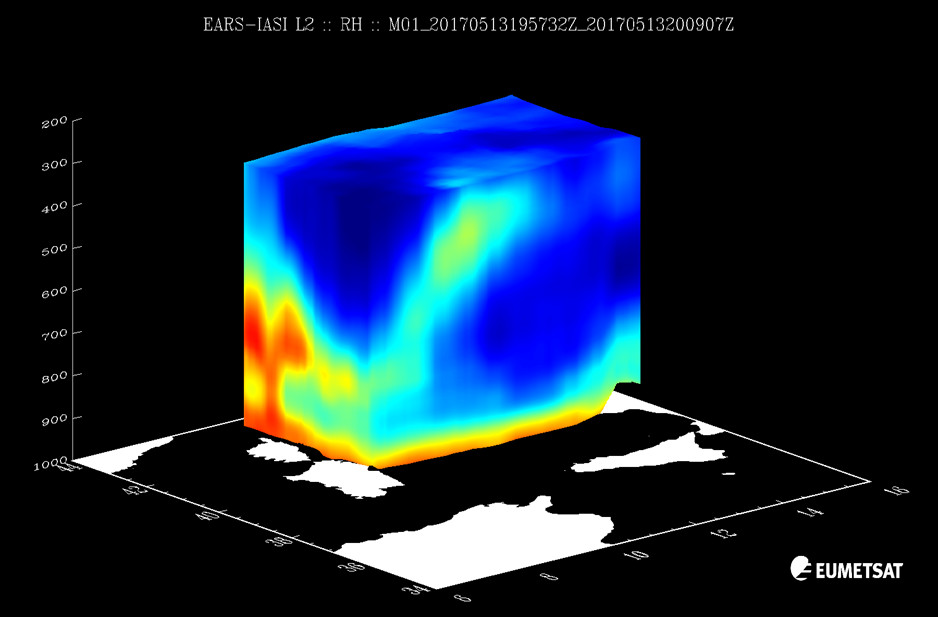METOP IASI Profiles
Operationally produced by EUMETSAT
Application:
Detection of possible unstable areas through satellite based temperature and humidity profiles in pre-convective environment and shallow cloudy areas.
The IASI sounding products include Temperature and Humidity profiles at footprint resolution in nearly “all-sky” conditions retrieved from IASI and collocated microwave (AMSU/MHS) measurements with a statistical method, the PWLR³ (Piece-Wise Linear Regression). They are provided with surface parameters and quality indicators. In cloud-free pixels, the products are completed with profiles retrieved with an Optimal Estimation Method (OEM) exploiting IASI only. These are provided with full error estimate covariance matrix.
Limitations:
4 overpasses per day at mid- and lower latitudes, including Metop-A and Metop-B.
Pros and cons:
✓ Good for following the deviation from the NWP model vertical profiles
✓ Available also during night-time and over many cloudy areas
✓ Regional EARS-IASI L2 service: combined statistical MW+IR products within 30’ from sensing, in HDF5 files
✓ Available over the whole globe
X global NRT dissemination: BUFR format, timeliness ~1.5h
Accessibility and Dissemination:
- Global products (PWLR3 and OEM) disseminated NRT via EumetCast – and GTS in BUFR format.
- Regional products (PWLR3 microwave + infrared) within 30’ via EumetCast in HDF5 format for EARS-IASI coverage.
- From the Data Centre archive, in native format
Additional Information:
Product Generation Specification
Product User Guide (Regional EARS-IASI L2 section 5.2.2 )
Validation papers:
Roman et al., “A global assessment of NASA AIRS v6 and EUMETSAT IASI v6 precipitable water vapor using ground-based GPS SuomiNet stations”, JGR 2016, DOI: 10.1002/2016JD024806
Boylan et al., “Identification and intercomparison of surface-based inversions over Antarctica from IASI, ERA-Interim, and Concordiasi dropsonde data”, JGR 2016
Feltz et al., “Assessment of NOAA NUCAPS upper air temperature profiles using COSMIC GPS radio occultation and ARM radiosondes”, JGR 2017, DOI: 10.1002/2017JD026504
Overview prepared by Thomas August, EUMETSAT, V. 2017
